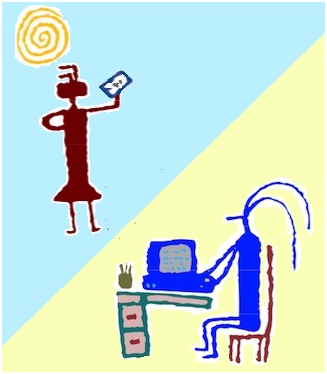
Recently, someone wrote to Energize, the largest publisher of books regarding volunteer engagement, asking:
I am specifically looking for information on laws regarding virtual volunteers. If a volunteer living in one state is a virtual volunteer for a nonprofit in another state, which state’s laws protect the volunteer should a legal issue arise/
Energize asked me to respond. One note: I don’t use the phrase virtual volunteers. I did when I first launched the Virtual Volunteering Project in December 1996, but got tired of people saying, “Oh, if they are virtual, they aren’t real?” or “I know how to work with real volunteers but I need to work virtual volunteers.” So I make a point of using virtual volunteering only for the concept/practice of working with volunteers remotely.
In my response, I noted that, since 1997, I have regularly asked questions of various lawyers about possible legal issues regarding risk management and liability about volunteers working remotely. In more than 20 years of asking, I haven’t gotten much advice specific to online volunteers. And in more than 20 years of searching, I haven’t found any legal issues at all regarding volunteers providing service remotely, in terms of anyone suing the online volunteers, being sued by the online volunteers, online volunteers being arrested, etc.
Board members are volunteers, and in some states, there are laws regarding online board meetings (if online votes are allowed, for instance, and what constitutes an online vote). I know California and Oregon have such laws. If you are wondering about specifics for your state, your state attorney general can guide you (a Google search might yield specifics as well).
In talking with legal folks about worst-case scenarios that might happen someday regarding online volunteers, Susan Ellis, my co-author of The Last Virtual Volunteering Guidebook, and I looked to how computer crimes are handled: if a person solicits a minor for sex, for instance, he or she is charged in the state where he or she used a computer to do that, not where the minor is. But, as far as I know, that worst-case scenario with online volunteers has not happened.
The only cases I have come across regarding legal issues and virtual volunteering have been re unscrupulous people running nonprofits that offer a letter to anyone needing to complete court-ordered community service hours and willing to pay a fee for that letter, which says, fraudulently, that the person undertook volunteering for that organization. I have tracked these stories for years.
So, are there legal risks for an organization to involve online volunteers? I’ve found none beyond possible, theoretical scenarios, nothing that has actually happened. There are risks, just as there are by allowing volunteers to work face-to-face with clients, allowing volunteers to come right onsite at your organization. Indeed, volunteers, onsite, in schools and religious organizations and any number of nonprofits, have done some very bad things, exploiting the access volunteering has given them to data, money, children, and others. The reality is that when humans are brought together, face-to-face or online, bad things can happen, whether they are volunteers, clients, paid consultants or employees.

Susan Ellis and I talk more about legal issues and risk management in virtual volunteering in The Last Virtual Volunteering Guidebook, available in print or as a digital version from the Energize bookstore (but note that there are less than 100 copies of the print version left!). The book is the result of more than 20 years of research and experience regarding virtual volunteering, including online micro volunteering, crowdsourcing, digital volunteering, online mentoring and all the various manifestations of online service. It’s packed with examples from a variety of organizations and details on how virtual volunteering works, how challenges are overcome, and how success is measured. It includes
- Detailed advice on virtual volunteering assignment, including one-time “Byte-Sized” tasks (micro-volunteering / microtasks), longer-term, higher-responsibility roles and virtual team assignments.
- A thorough look at various practices for screening and matching volunteers to assignments, with an eye to getting the most capable volunteers into your volunteering ranks and preventing incomplete assignments or burdensome management tasks
- How to make online volunteer roles accessible and welcoming for a variety, diversity of people
Susan and I wrote The Last Virtual Volunteering Guidebook in such a way that it would be timeless – as timeless as a book about using computers, laptops, smart phones and other networked devices could be. It is USA-centric but it offers a lot of international perspectives as well.
Also see:
- Copyright, ownership & works by volunteers.
- Microvolunteering is virtual volunteering
- Research needs re: virtual volunteering
- Safety in virtual volunteering
- The future of virtual volunteering? Deeper relationships, higher impact

If you have benefited from this blog or other parts of my web site and would like to support the time that went into researching information, developing material, preparing articles, updating pages, etc. (I receive no funding for this work), here is how you can help.
